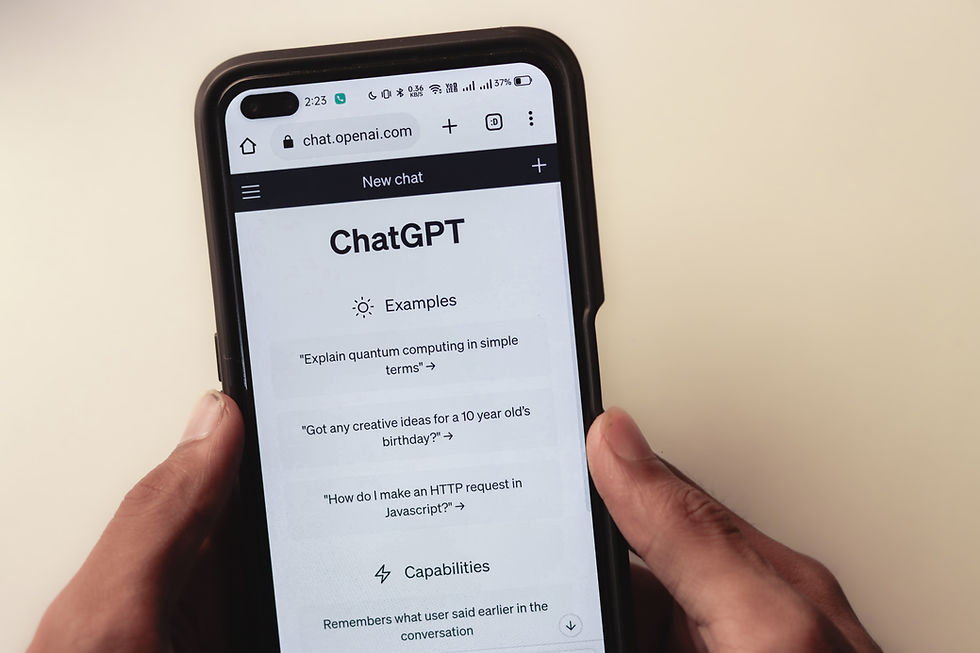
Demystifying the Power of Chatbots: A Deep Dive into AI-Powered Conversation
In the technology-driven age, Artificial Intelligence (AI) chatbots are revolutionizing the way businesses communicate with their customers. These advanced, self-learning programs are engineered to mimic human interaction, providing instant, relevant responses that enhance customer experience.
Understanding AI Chatbots
AI chatbots are essentially software applications equipped with AI technology and Natural Language Processing (NLP) capabilities. They're designed to simulate human conversation, understand user intent, and provide accurate responses - all in real time.
Mermaid Diagram:
mermaid
graph TD;
A[AI Chatbots] --> B[NLP]
A --> C[Machine Learning]
B --> D[Text Processing]
C --> E[Data Training]
D --> F[User Intent Understanding]
E --> F
Chatbots: How do They Work?
AI chatbots leverage sophisticated technologies such as NLP, machine learning, and semantic understanding. These technologies allow chatbots to understand, analyze, and generate human-like responses, providing a seamless communication experience.
Natural Language Processing (NLP)
NLP is a crucial technology behind AI chatbots. It enables chatbots to comprehend, analyze, and generate language just like a human would. NLP comprises two significant components: Natural Language Understanding (NLU) and Natural Language Generation (NLG).
Machine Learning
Machine Learning (ML) allows AI chatbots to learn from experiences, making them more intelligent over time. ML algorithms help chatbots analyze historical data and predict appropriate responses based on the patterns they recognize.
The Many Faces of AI Chatbots
AI chatbots are increasingly adopted across various industries due to their versatility and the multitude of benefits they offer. Here are some key areas where AI chatbots have made a significant impact:
E-commerce
AI chatbots help online retailers by automating customer support, providing personalized product recommendations, and streamlining the shopping experience. They can also assist with order tracking and return processes, making e-commerce more efficient.
Healthcare
In healthcare, AI chatbots aid patients by scheduling appointments, providing medication reminders, and delivering health-related information. They can also assist medical professionals by collecting patient data for better diagnosis and treatment.
Education
In the education sector, AI chatbots can serve as virtual tutors, helping students learn at their own pace and answering queries around the clock. They can also assist in administrative tasks such as admissions and course registrations.

The Future of AI Chatbots
The advancements in AI technology promise an exciting future for AI chatbots. We can expect to see more intuitive and conversational chatbots that can understand complex queries, detect user emotions, and deliver more personalized experiences.
Final thoughts
In the digital age, AI chatbots are becoming an integral part of businesses, offering improved customer experiences and operational efficiencies. By understanding human language and continually learning, these chatbots are set to revolutionize industries in ways we can't even imagine yet.
As we venture further into the realm of AI, one thing remains certain - AI chatbots are here to stay, and their potential is boundless.
Frequently Asked Questions about AI Chatbots
1. What is an AI Chatbot?
An AI Chatbot is an artificial intelligence-powered software designed to simulate human-like conversations. It uses technologies like Natural Language Processing (NLP) and Machine Learning (ML) to understand user queries and generate relevant responses.
2. How Do AI Chatbots Work?
AI Chatbots work by leveraging NLP and ML. NLP allows the chatbot to understand and analyze user inputs, while ML enables the chatbot to learn from past interactions and improve its responses over time.
3. How Can AI Chatbots Improve Customer Service?
AI Chatbots can greatly enhance customer service by offering 24/7 support, providing instant responses, and personalizing interactions based on user preferences and past interactions. They can also handle multiple queries simultaneously, which can improve operational efficiency.
4. Can AI Chatbots Understand Different Languages?
Yes, many AI Chatbots are multilingual and can understand and respond in various languages. However, the number and type of languages supported can vary between different chatbot platforms.
5. Are AI Chatbots Secure?
AI Chatbots can be made secure through encryption, secure user authentication, and data privacy measures. However, the level of security can depend on the specific chatbot platform and how it's implemented.
6. What is the Future of AI Chatbots?
The future of AI Chatbots looks promising, with advancements in AI technology leading to more intelligent, intuitive, and personalized chatbots. They are expected to become even more prevalent across various industries, enhancing customer service, streamlining operations, and contributing to business growth.

Top 5 Tips for Implementing AI Chatbots
1. Define Clear Goals
Before deploying an AI chatbot, identify your goals. Are you looking to improve customer service, generate leads, or gather customer feedback? By setting clear objectives, you can ensure the chatbot is tailored to meet your specific needs.
2. Opt for a User-Friendly Design
The design of your AI chatbot should prioritize user-friendliness. Make sure the interface is intuitive and the conversation flow is smooth. Remember, the easier it is for users to interact with your chatbot, the better the user experience.
3. Prioritize Personalization
AI chatbots have the power to personalize interactions based on user behavior and preferences. Use this to your advantage to deliver more relevant and engaging experiences, thereby boosting customer satisfaction and loyalty.
4. Ensure Continuous Learning
Leverage Machine Learning capabilities to enable your AI chatbot to learn from each interaction. Regularly update your chatbot based on these learnings to improve its performance and accuracy over time.
5. Don't Neglect Security
User data security is paramount. Make sure your AI chatbot is designed with robust security measures to protect sensitive user information. Transparency about how data is collected, stored, and used can also foster trust with your users.


























